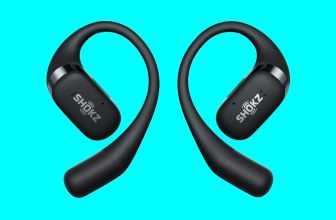
Hinge Will Try to Thwart Scammers With Video Verification
Match Group, which operates one of many world’s largest portfolios of courting apps, will quickly add a brand new profile verification function to its common courting app Hinge. The function is a component of a bigger effort to crack down on scammers who use pretend photographs and purport to be individuals they’re not on the app, typically with the intent of finally scheming romantic conquests out of cash.
Jarryd Boyd, director of name communications for Hinge, stated in a written assertion that Hinge will start rolling out the function, named Selfie Verification, subsequent month. Hinge will ask customers to take a video selfie throughout the app so as to verify they’re an actual individual and never a digital pretend. Match Group then plans to use a mix of machine studying know-how and human moderators to “compare facial geometries from the video selfie to photos on the user’s profile,” Boyd stated. Once the video is confirmed as genuine, a person will get a “Verified” badge on their Hinge profile.
The transfer comes after a current WIRED story highlighting the proliferation of pretend accounts on the Hinge courting app. These pretend profiles are sometimes peppered with shiny photographs of engaging individuals, although there’s one thing off-putting about their perfection. The individual has typically “just joined” the courting app. Their descriptions of themselves or responses to prompts are nonsensical, an indication that an individual could also be utilizing a translation app to strive to join with somebody of their native language. And in lots of cases, the individual on the opposite finish of the fraudulent profile will urge their match to transfer the dialog off of the app—a technique that enables them to preserve a dialogue even when the fraudster is booted off of Hinge.
By December, Selfie Verification needs to be out there to all Hinge customers worldwide, which incorporates individuals within the US, UK, Canada, India, Australia, Germany, France, and greater than a dozen different international locations.
“As romance scammers find new ways to defraud people, we are committed to investing in new updates and technologies that prevent harm to our daters,” Boyd stated.
Hinge is certainly one of many courting apps owned by Match Group, and it is not the primary to use a face recognition instrument to strive to spot fakes. Prior to this, Tinder and Plenty of Fish had picture verification instruments. In August a spokeswoman from Match Group instructed WIRED that photographic verification could be coming to Hinge, OKCupid, and Match.com “in the coming months.”
Match Group has additionally emphasised that it has a Trust & Safety crew consisting of greater than 450 staff who work throughout the corporate’s many courting apps, and that final 12 months Match Group invested greater than $125 million to construct new know-how “to help make dating safe.” Four years in the past, it created an advisory council to provide you with insurance policies to forestall harassment, sexual assault, and intercourse trafficking.
The firm’s rollout of video verification instruments on Hinge are lengthy overdue—and is probably not foolproof. Match Group has additionally not but responded to a sequence of follow-up questions, so it’s unclear whether or not the video verification function will likely be a requirement for all Hinge customers or elective.
It’s Really Me
Maggie Oates, an impartial privateness and safety researcher who has additionally programmed a recreation about intercourse work and privateness referred to as OnlyBans, says in an e mail that she strongly believes biometric authentication needs to be elective and incentivized in courting apps, however not required. A multi-pronged verification strategy could be more practical, Oates says, with the additional advantage of giving customers choices. “Not everyone is comfortable with biometrics. Not everyone has a driver’s license. Online identity verification is a really hard problem.”
And she believes that relying solely on facial recognition know-how for profile verification will solely final for thus lengthy.






